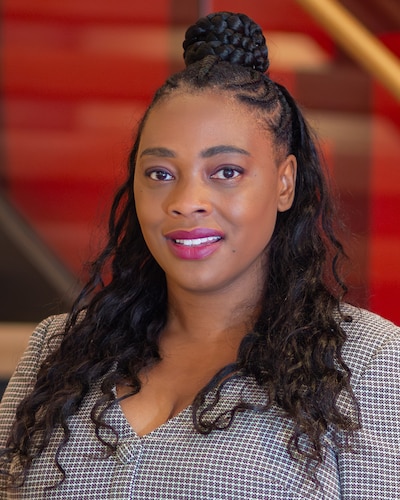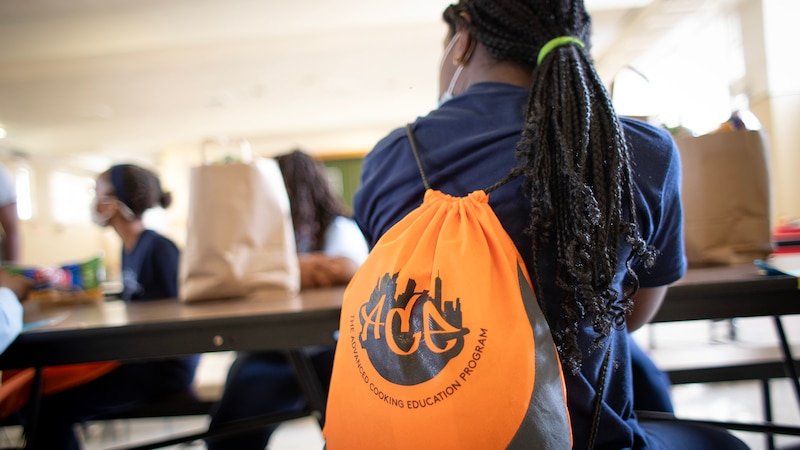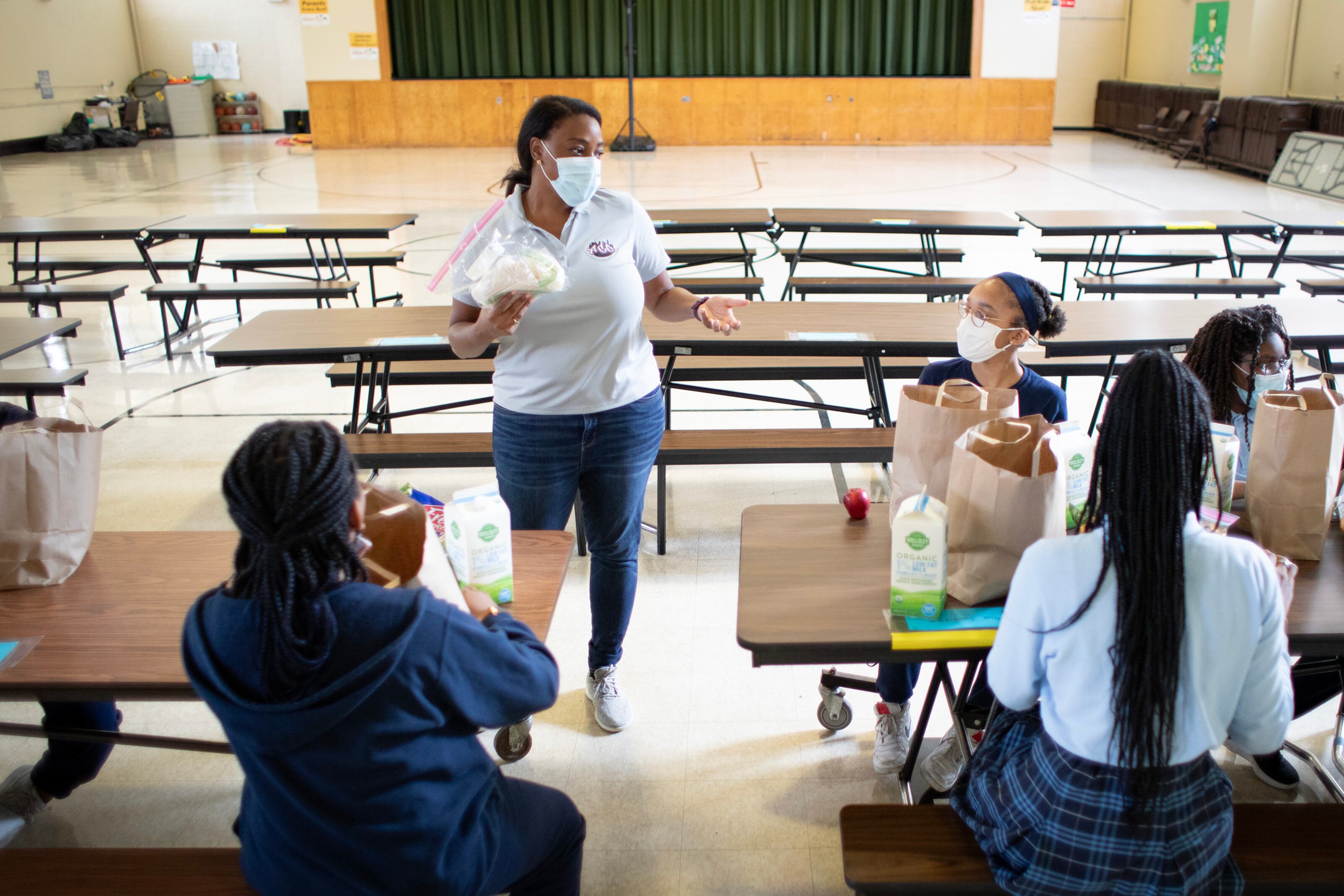This story was originally published by Healthbeat: Public health, explained. Sign up to receive Healthbeat’s free New York City newsletter here.
Dr. Tashara M. Leak spent years developing a pioneering program in nutrition education for adolescents in New York City.
Through the Advanced Cooking Education 4-H After School Club, seventh and eighth graders met once a week to learn about wellness, develop culinary skills, and gain exposure to careers in food and nutrition. The 12-week program worked with Brooklyn and Manhattan schools where a significant share of students come from low-income households.
“People think about hunger, but to be able to prioritize nutrition is a privilege,” said Leak, an associate professor in the Division of Nutritional Sciences at Cornell University and an associate dean at the College of Human Ecology in New York City.

The U.S. Department of Agriculture funded the ACE program with a 5-year, $990,000 grant, and Leak envisioned it as a new model for 4-H, expanding the reach of the agency’s youth development program. In January, Leak received a 2025 Presidential Early Career Award for Scientists and Engineers, the highest honor bestowed on early-career scientists and engineers by the federal government.
But in May, her program came to a sudden halt. Leak received a stop work order from the USDA, part of a wave of federal research grant terminations across the country.
Now, she’s hoping to find a way to continue the ACE program, which has been fully operational for two years and has served at least 60 students.
Here’s an interview with Leak about the program and the impact of the grant termination. The interview has been edited for length and clarity.
How did the ACE program come to be?
If I think about nutrition education, it’s teaching a lot of adolescents how to make yogurt parfaits and fruit kebabs. But we have a whole subgroup of adolescents who are actually responsible for entire meals from start to finish. I thought about that “adultified” adolescent, and was like, “How do we support them? Where are they located?”
A lot of times, they’re located in big cities. They’re usually “adultified” for very specific reasons, maybe because they live in a single-parent household, or even in two-income households with shift work. Oftentimes, it’s affiliated with poverty. In New York City, you’ve got middle-schoolers riding to and from school on subways by themselves by the time they’re 10. We have quite a few “adultified” adolescents in New York City. What about their health and well-being, and how do we support them? That’s why I created the Advanced Cooking Education 4-H After School Club.
What does the ACE program involve?
It’s 12 weeks, specifically targeting seventh and eighth graders at schools that receive Title I funding. What we’re doing is exposing them to careers in food and nutrition, hoping that if they see themselves working in the field, maybe they will want to eat healthier and role model healthy eating. What we’re not doing is saying, “Eat healthy. Don’t eat this.” These are teenagers; they have a lot of autonomy.
The careers we’re exposing them to include food science, urban agriculture, and food photography. Culinary science is a huge part of this. Every other week, we send them home with a bag of groceries, and they take it home and complete a cooking lab at home. This isn’t just cooking for their family. They’re actually learning about sensory evaluations and various knife skills and, “Oh, this tasted too salty. How do you alter the recipe so it’s less salty?” At the end, they have a public speaking competition, which functions almost like a job interview.
At the beginning of every session, we have a mindfulness component. We start with a brief meditation, and then they stretch, and there’s a journal prompt that’s informed by the CASEL Framework around social and emotional learning. When we decided to do this, it was in response to so many of the adolescents talking about how stressed they were, not just about applying to high school but just stressed about life.
You could tell that they have been exposed to adult-level issues, and they were aware of their neighborhood poverty or various social issues. While I can’t solve these bigger problems, our goal is to give them tools to center themselves and create quiet spaces, even in the midst of living in this very large city.
With the recipes, we made sure to inquire about the identities of students in New York City and also the cuisines they’re exposed to. So they’re making plant-based dishes from various cultures — they’re making Korean food, they’re making Caribbean food. This idea that you have to abandon your cultural food to be healthy is not, indeed, factual. Whenever they’re cooking the dishes, they also learn about the cultural significance of the dish and the ingredients used in that dish.

What would you hear from students about the program?
We’ve only gotten really positive feedback. With the mindfulness piece, we conducted focus groups at the end of every cohort, and [students] talked about how they use it during school, if they’re studying for a test, and how they acquired some tools to center themselves during challenging times.
Trying new foods is actually quite a privilege. If you’re on a limited income, it’s really hard to try new foods because you are concerned about food waste, and every dollar counts. The students talked about preparing dishes that they have never prepared before. They were like, “I didn’t know I would like a black bean burger, but I’m so glad I was able to try that in this program.”
With the public speaking competition, they are so nervous when they’re preparing, and then at the end, they always talk about how proud they are of themselves. They all have amazing skills, but I think they didn’t know how to tap into those skills, and then how to articulate that.
What was the research component of the program?
From a research standpoint, we wanted to know how the program was impacting their nutritional status. We were curious if, by the conclusion of the program, were they eating healthier? We use something called the Healthy Eating Index. It has 13 sub-components, and it really allows the students to choose where they want to improve, so it could be that they decide to eat more whole-grain snacks, or it could be that they decide to eat more vegetables or more fruits. We didn’t look at one food group. We gave them the option to set goals each week around how they wanted to improve their nutrition.
That was the primary outcome: their diet intake. Then we also were looking at cooking skills, attitudes, and self-efficacy. If these are kids who are at risk for being “adultified,” I can’t change the fact that now, or maybe in a couple years, you are going to have household cooking responsibilities; but maybe I can help you cook more efficiently and healthfully with limited resources.
With the mindfulness, we’re looking at improvements in their stress: Are they reporting that they’re less stressed? And then we also looked at a sense of purpose and identity: Do they see themselves in this program, and do they feel more centered and grounded in purpose after participating in this?
What was it like to receive the stop work order?
I was really blindsided, just because I’ve been so well supported by USDA for like a decade. This particular study has received so much local, statewide, and national attention. Then I get [the stop work order], and I’m supposed to call parents the next day and say, “Sorry, your kid can’t show up to after-school.” I just couldn’t do that, especially since we were so close to the end of the school year. So I’m very grateful that I had some money in reserves at my job, that I was able to use those funds to finish out the school year.
I was able to piece together funds so that the students weren’t aware of what was happening. But these schools, they’re expecting we were going to do this another year, and right now, I don’t have any funding for another year. I’m working really hard to identify alternate funding sources so I can fulfill my commitment to the schools and to the students.
Does it seem likely that you’ll be able to find other funding sources?
These are real people. I know these students, I know these teachers. I know these principals and the school nurses. I have been integrated into their communities. And so while I don’t know, today, how I’m going to pull this off, I’m going to pull it off. I can’t sleep at night knowing that I made a promise to schools that have historically had so many people make promises and break those promises. I know that all of my sites know that this is not of my choosing, but I am going to find a way to fulfill my commitment. I’m going to figure this out, because it’s just too important.
Eliza Fawcett is a reporter covering public health in New York City for Healthbeat. Contact Eliza at efawcett@healthbeat.org.







